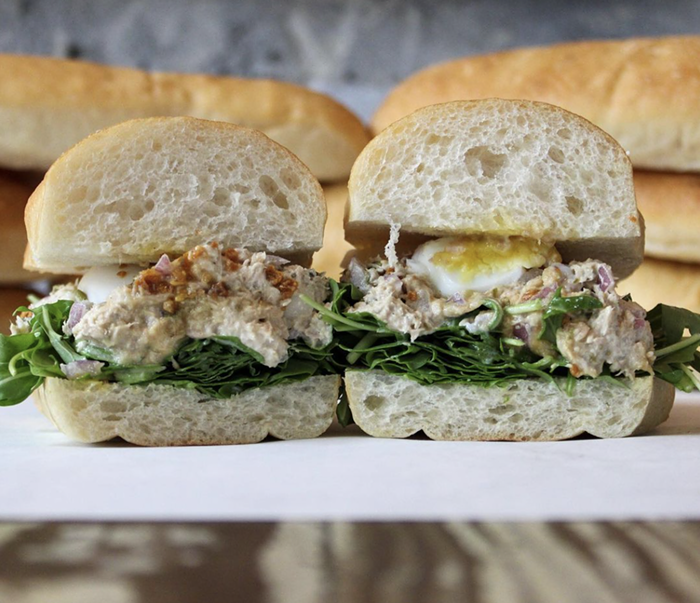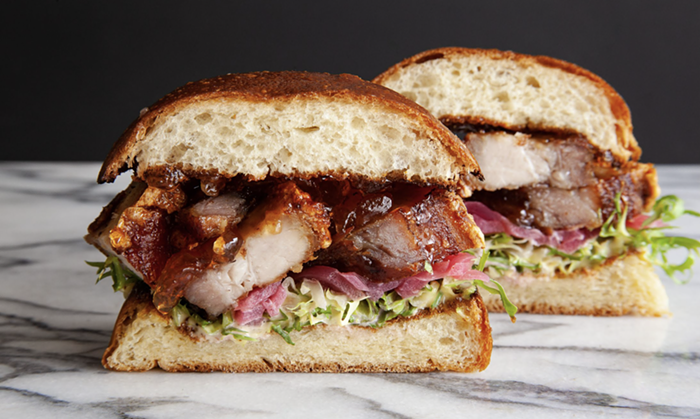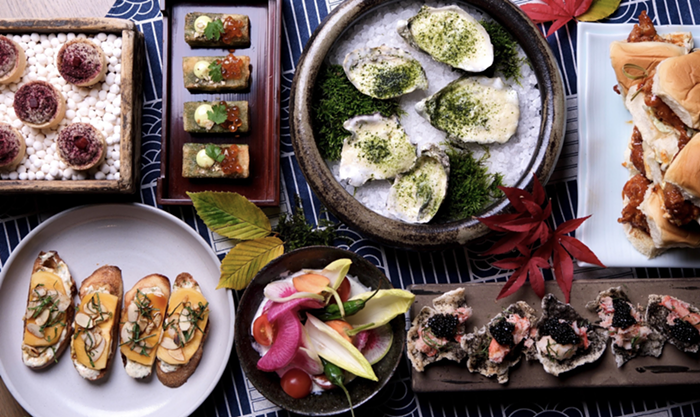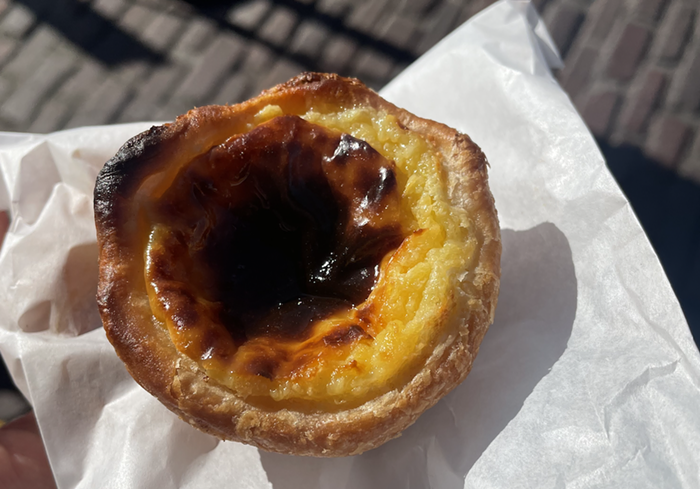Umi Sake House has style. It's sleek, modern, Asian; imagine the space-age Bada Lounge crossed with a sushi restaurant. It's on the same premises as Bada and has the same owner. The new concept to go with the new look: the izakaya model of Japanese dining, in which white-collar types celebrate quitting time with lots of snacks and lots of drinks.
Umi Sake House has a scene. On a recent Thursday evening, it was doing its job of smoothing workday into nightlife, buttoned-up into tipsy, maybe even single into paired for a near-capacity crowd of young urban professionals. The likes of Thievery Corporation provided the soundtrack, often overridden by the noise of fun being achieved. The main room—like an upscale Tokyo cafeteria with a theater-style sushi counter and red-backlit bar—had a festive din. The enclosed courtyard, with its big skylight and miniature Japanese maples, resonated with a dozen loud conversations and the guffaws of a group of guys. A woman bent far, far forward over a low table, flipping her hair and presenting her cleavage in a businesslike manner to her date.
Does Umi Sake House have substance? The remodel, rumored to have cost a small fortune, is oddly unprofessional in spots. The faux outdoor patio is presumably meant to evoke a Zen garden with its shake-shingle walls, blond wood furniture, and sauna-like slatted banquettes. It's dissonant to find electrical cords winding snakelike up potted trees in search of outlets on the ceiling, a stark emergency-exit door in a forgotten corner, a faint splatter marring the picture window onto the sushi bar.
Cosmetics can be overlooked. But at a self-proclaimed sake place, the beautiful intricacies of the drink—the polishing of the rice, the ascending classifications, the subtleties of flavor—ought not to be neglected. Here, it's just hot or cold, with a large selection but a short by-the-glass list, no details as to provenance or nuance, no clues about where to start or how to proceed. Busy servers don't give the impression that there's time for a tutorial. A flight of sake tastes paired with a few small plates and a modicum of information would sell like crazy here; it'd be easy to order, it'd be fun. Under the circumstances, the "commitment to sake...[to] educating its guests" touted on Umi's website sounds a lot like bloviation.
The vast pan-Asian menu holds out the possibility of a tapas-style bounty of exquisite little dishes, each showcasing a few lovely ingredients and a new sensation. But chef Billy Beach, formerly of I Love Sushi and Wasabi Bistro, instead seems to pander frantically to the fat-addicted and sweet-toothed. A long list of specialty sushi rolls relies heavily on frying, mayonnaise/aioli/cream cheese, and teriyaki sauce (often in lethal-sounding combination). The tarantula extreme ($15) involves crab, cucumber, and tobiko wrapped in avocado and laden liberally with a Thousand Island–type dressing. It's a big, gloppy confusion of a thing that looks like it was made by a clown and tastes like everything and nothing at the same time.
Fried, creamy, and sweet prevail among the dozens of small plates as well. In the merely uninspired category, a sculptural tower of king crab and avocado ($12) attains relative freshness, standing up valiantly to its cilantro and yuzu aioli. Cross-sections of grilled short ribs ($8) have a generic garlic soy glaze—candy-like but inoffensive. Six dishes under the heading "baked" offer various kinds of seafood or wild mushrooms casseroled with different kinds of mayonnaise; the mushrooms ($7) are a one-note affair with a melted lid of tartar mayo and cheese. ("Baked," indeed; it's total stoner food.) Steak tataki ($10) crosses the line into unpleasant. Made with some very chewy filet mignon, it's sauced redundantly with a pool of ponzu and an overlay of squeeze-bottled wasabi aioli. A breaded and fried halibut cheek ($9), overcooked to the point of stringiness, moves into the realm of difficult to identify—it's tasteless, and the texture's more chicken-like than oceanic. The filling of house-made gyoza ($9), on the other hand, is unmistakably fishy, far more so than shrimp and scallops ought to be. They're not inedible, just close.
Umi ultimately feels like the execution of a strategy rather than a labor of any sort of love. The sensation you're left with is, like the place itself, empty but full. ![]()


















